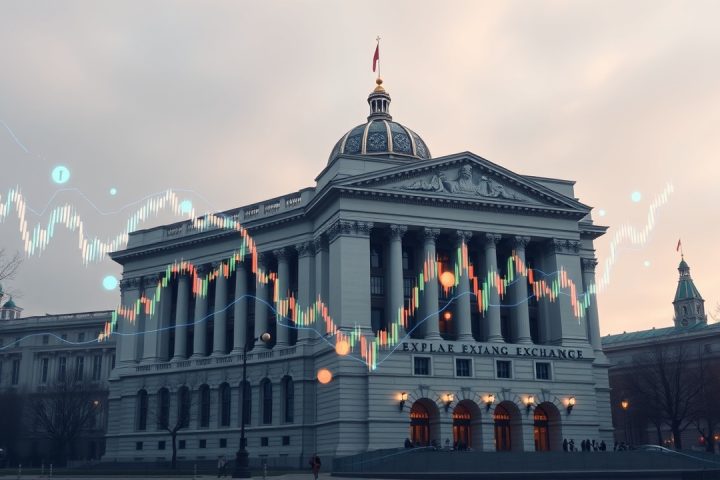China’s Regulatory Shift on Tokenization of Real-World Assets
In a significant move that underscores its tightening grip on digital assets, China’s securities regulator has reportedly urged local brokerage firms to cease their operations concerning the tokenization of real-world assets (RWA) in Hong Kong. This recommendation, which comes from the China Securities Regulatory Commission (CSRC), highlights growing apprehension over the burgeoning offshore digital asset market.
According to insights from Reuters, two major brokerages have received informal notices from the CSRC to suspend their RWA activities as authorities become increasingly wary of potential risks associated with these financial products.
Concerns Over Speculative Investments
This advisory reflects broader concerns from Beijing regarding speculative investments and exposure linked to tokenized assets, particularly as Hong Kong aggressively positions itself as a preeminent digital asset hub in Asia. This shift is particularly noteworthy given Hong Kong’s rapid emergence in the past year, with multiple Chinese enterprises venturing into virtual asset trading, offering yield-generating token products, and presenting tokenized bonds.
Tokenization of RWAs involves converting tangible assets—such as stocks, real estate, and bonds—into digital tokens that can be traded on blockchain networks. A source indicated that the CSRC aims to enhance risk management and to ensure that RWA offerings are grounded in legitimate and viable business models. However, there has been no formal public announcement from the CSRC regarding this pause, leaving the duration of this advisory uncertain.
Hong Kong’s Digital Economy and Regulatory Landscape
While the Chinese government imposed a ban on cryptocurrency trading and mining in 2021, state-backed entities still dabble in blockchain advancements cautiously. Conversely, Hong Kong continues to foster its digital economy with the introduction of a stablecoin licensing framework and is currently reviewing the legalities surrounding RWA tokenization via the Hong Kong Monetary Authority (HKMA) and the Financial Services and the Treasury Bureau (FSTB).
Several notable transactions have already occurred. For instance, in June, GF Securities launched its “GF Tokens” backed by fiat currencies. Similarly, last month, China Merchants Bank International facilitated the issuance of a 500 million yuan digital bond for a Shenzhen company. Notably, both companies have refrained from commenting on any CSRC guidance.
Reports indicate that 77 companies have expressed interest in Hong Kong’s new licensing structure, signifying a robust appetite for this market.
Investor Sentiment and Market Potential
Investor sentiment surrounding tokenized assets remains bullish, as evidenced by soaring stock prices—Guotai Junan International experienced a more than 400% increase following approval for crypto trading, while Fosun International‘s shares surged 28% after discussions with Hong Kong officials about stablecoin initiatives.
According to a recent study by Animoca Brands, the potential for tokenizing RWAs could unveil a massive $400 trillion market within traditional finance. Their research highlights vast opportunities across diverse sectors such as private credit, commodities, stocks, and bonds, emphasizing that the estimated $400 trillion market represents considerable growth potential for RWA tokenization.
The 2025 Skynet RWA Security Report echoes these sentiments, forecasting that the market for tokenized RWAs could reach about $16 trillion by 2030. Notably, tokenized U.S. Treasuries are anticipated to command a value of $4.2 billion in the current year, driven primarily by activity in short-term government bonds. Institutional interest continues to gain momentum, with banks, asset managers, and blockchain firms actively exploring tokenization for enhanced yield and liquidity management.




